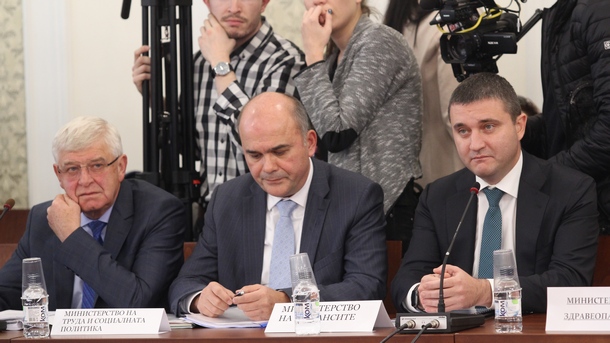
The new national budget comes into effect today. It envisages a deficit of 1 billion 100 million Leva, even though last year the treasury ended the year with a surplus of close to 800 million Leva.
According to the parametres of the 2018 budget, the state will only be able to take out a loan from the domestic market which cannot exceed 1 billion Leva which will only be used for:
„Repayments and the net funding will remain negative. In the coming year we shall pay off 600 million more debts,” explained Finance Minister Vladislav Goranov.
The past two years have seen the planning of a budget deficit, though the year ended in surplus. There is a deficit planned for 2018 too because the budget: “On the expenditure side looks to the young, takes care, albeit not always sufficiently, of the people who cannot take care of themselves, of the elderly and without taking away any of the assets – of the people who create wealth.”
More money has been earmarked for education, for healthcare, social activities, the Interior Ministry, for defence. Addressing all those demanding more funding, Minister Goranov said:
“We must get used to the idea that we must cut our coat according to our cloth.”
The budget is criticized most of all for failing to create buffers against the future overheating of the economy, and that it is not used to put in place vital reforms in a number of sectors.
In its “Questions and Answers” section on the introduction of the euro, the Bulgarian National Bank has published a clarification on how the single currency should be denoted and written in accordance with EU regulations. The name of the..
The government approved the draft Law on the 2026 State Budget, as well as the Updated Medium-Term Budget Forecast for the 2026–2028 period. In connection with the introduction of the euro on January 1, 2026, all figures have been prepared in..
Citizens should remain calm about the introduction of the euro in Bulgaria from January 1, 2026, as the Bulgarian National Bank and commercial banks are ready for all processes related to the currency conversion and distribution of euro banknotes. This..

+359 2 9336 661
